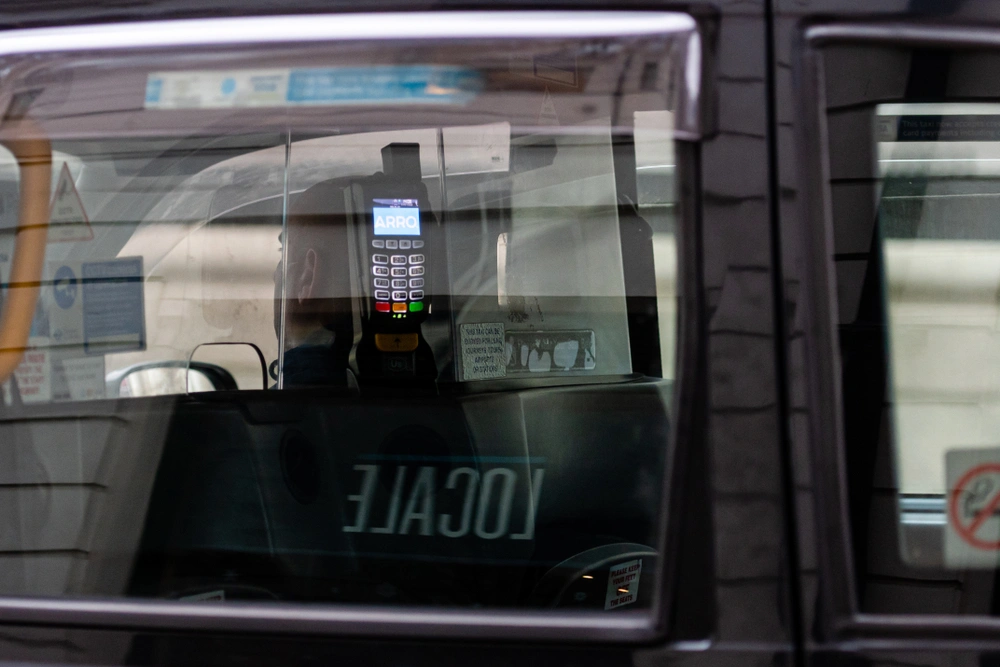The government’s Cost of Living Payments scheme ended in February 2024 with the final £299 payment. But that doesn’t mean support has stopped. There are still several types of help available if you’re struggling with day-to-day costs.
While the DWP has confirmed there won’t be any more Cost of Living Payments, the Household Support Fund has been extended until March 2026. This gives councils extra money to help households in need.
How Cost of Living Payments worked (2022-2024)
Cost of Living Payments were brought in as an emergency measure during a very tough time where inflation and post-pandemic pressures caused the cost of living to skyrocket.
The government introduced a comprehensive support package worth over £15 billion to help the most vulnerable households through this crisis period.
Payment structure and timeline
If you were eligible, you may have received top-ups to existing benefits, or possibly accessed new support.
- 2022-23: Two payments adding up to £650 (£326 + £324)
- 2023-24: Three payments adding up to £900 (£301 + £300 + £299)
- Two extra payments of £150 each (2023 and 2024)
- Extra £150-£300 added to Winter Fuel Payments
- Some households received up to £1,550 across the two-year period.
Who received the Cost of Living Payments?
Around 8 million households got Cost of Living Payments. These went to people on certain means-tested benefits, such as:
- Universal Credit
- Pension Credit
- Income-based Jobseeker’s Allowance (JSA)
- Income-related Employment and Support Allowance (ESA)
- Income Support
- Child Tax Credit or Working Tax Credit
When was the last Cost of Living Payment?
The last Cost of Living Payment was £299. This was paid between 6-22 February 2024. It was the final payment, and it meant families received £900 in total that year to help with their bills.
Are there any Cost of Living Payments planned for 2025?
No – the government has confirmed there are no further Cost of Living Payments planned for 2025. The final payment of £299 was made between 6–22 February 2024.
⚠️ Be aware of scams: If you see texts, emails, or social media posts claiming you can apply for a new Cost of Living Payment in 2025, it’s likely to be a scam. The DWP never asks for bank details by text, email, or phone call.
If you’re struggling with everyday costs, support is still available in 2025 through other schemes.
Current support schemes available in 2025
Here are the main schemes still running in 2025, and how to get them:
|
|
|
|
|
|
|
£100-£200 (varies by council)
|
Vulnerable households on low income
|
Apply through local council
|
|
|
|
Pensioners born before 22 Sept 1959 + receiving Pension Credit
|
Automatic for eligible pensioners
|
|
|
£150 electricity discount
|
Pension Credit recipients + low-income households
|
|
|
|
|
Benefit recipients when temp below 0°C for 7 days
|
|
|
|
|
Pensioners on low income (gateway to other support)
|
Must apply - can backdate 3 months
|
|
|
|
|
Apply through local council
|
|
|
|
Low-income working families, unemployed, disabled people
|
|
|
|
|
People facing a financial crisis, such as sudden loss of income, benefit delays, or unexpected expenses.
|
Apply through local council
|
Household Support Fund: The main help available
The Household Support Fund has been extended until March 2026 with £742 million given to councils in England to support those most in need.
What the fund covers
- Food support: Vouchers, grants, or direct food provision
- Energy assistance: Help with gas, electricity, and water bills
- Essential items: Clothing, household appliances, furniture
- Housing costs: Emergency rent or mortgage assistance
- Other necessities: Transport, hygiene products, heating fuel
How it works
Each council sets up its own scheme, which means they decide:
- Who can apply
- How much is paid (usually £100–£200)
- What the application process looks like
- Which groups get targeted help
Why it’s useful
- No single means test – councils use their own rules
- You don’t always need to be on benefits to qualify
- You can apply more than once during the funding period
- Payments can come as cash, vouchers, or bill credits
👉 To apply: Contact your local council directly or search online for “Household Support Fund [your council name]”.
Winter support schemes
Winter fuel payment
- Born on or before 22 September 1959
- Getting Pension Credit during the qualifying week (15–21 September)
- Living in England or Wales during that time
- £200 if you’re aged 66–79
- £300 if you’re 80 or over
When it’s paid: Automatically, between November and December each year.
Warm home discount
This gives a £150 discount on your electricity bill during winter (October to March).
- People getting Pension Credit (Guarantee Credit)
Other possible eligibility (you may need to apply):
- People on Universal Credit, Housing Benefit, or other means-tested benefits
- Low-income households who meet their supplier’s rules
👉 From 2025–26, the “high energy cost” rule is likely being removed — meaning more households should qualify.
Cold weather payments
You’ll get £25 automatically if your local area has 7 days in a row where the temperature is 0°C or below.
- People on Pension Credit
- Some people on Income Support, income-based JSA/ESA, or Universal Credit (with certain conditions)
- People on Support for Mortgage Interest
When it’s paid: 1 November to 31 March each year.
Universal Credit and benefit support
Universal Credit
Universal Credit gives monthly help if you’re on a low income, whether you’re working or not.
It can include extra amounts for:
- A standard allowance (over £400 a month for a single adult over 25)
- Children
- Housing costs
- Disabilities or long-term health conditions
- Childcare costs if you’re working
Other key benefits
- Personal Independence Payment (PIP): For people with long-term health conditions or disabilities (not linked to work status).
- Child Benefit: £25.60 a week for your first child, £16.95 for each additional child.
- Working/Child Tax Credit: Support for working families (being replaced by Universal Credit).
Council Tax support and reductions
Automatic reductions
- Single person discount: 25% off if you’re the only adult in the household.
- Student exemptions: Full exemption for eligible full-time students.
Income-based support
Council Tax Support (sometimes called Council Tax Reduction) can cut your bill based on things like:
- Your income
- How many children you have
- Your savings
- Your council’s local rules
Each council runs its own scheme, so the criteria vary.
Local welfare and emergency support
Crisis support
Many councils also provide emergency help if you’re struggling. This might include:
- Food parcels or vouchers
- Essential furniture (for new tenancies, as an example)
- Emergency energy credit for prepayment meters
- Clothing grants for children or adults
Application process
- You’ll usually need to show evidence of urgent need
- Some councils ask for a referral from a GP, support worker, or another professional
- Applications are often limited, e.g. once a year
- Each case is judged on individual circumstances
Energy company support
Supplier hardship funds
Most big energy companies have schemes to help people in difficulty. Examples include:
- British Gas Energy Trust: Grants up to £2,000 (open to non-customers)
- E.ON Next Energy Fund: Financial help for customers in difficulty
- Octopus Energy Hardship Fund: Support for vulnerable customers
Other help from suppliers
- Payment plans to spread costs
- Emergency credit for prepayment meters
- More flexible repayment arrangements for debts
- Advice on how to cut energy use and lower bills
Charitable and community support
National charities
- Turn2us: Benefits calculator and grant finder (covers hundreds of funds)
- StepChange: Free debt advice and help with energy debt
- Citizens Advice: Guidance with money, benefits, and applications
Food support
- Trussell Trust: Food banks across the UK (some don’t need referrals)
- Local networks: Community groups, faith organisations, and mutual aid groups
- School holiday help: Many councils offer food vouchers for families during the holidays
How to access support – step by step
For immediate help
- Contact your council about the Household Support Fund or emergency assistance
- Check your benefit entitlements online
- Apply for Council Tax Support if you’re not already getting it
- Speak to your energy supplier about hardship funds or payment plans
For ongoing support
- Apply for Pension Credit if you’re eligible (it opens the door to lots of extra help)
- Apply for Universal Credit if you’re working on a low income
- Check disability benefits (PIP, DLA) if you have a health condition
- Look into charitable grants via Turn2us
For winter costs
- Make sure you get your Winter Fuel Payment if you’re pension age
- Apply for the Warm Home Discount through your supplier
- Register for Cold Weather Payments if you get qualifying benefits
- Ask your energy supplier about winter support funds
Support in 2025 – What’s still available
The emergency Cost of Living Payments may have ended, but there’s still plenty of help out there. In fact, around £19 billion in benefits go unclaimed every year – often because people don’t realise what they could get.
Support can come from lots of places, including:
- Government benefits – like Universal Credit, Pension Credit, and disability support
- Local council help – Household Support Fund, welfare schemes, Council Tax support
- Energy help – supplier hardship funds, government discounts, and schemes to make your home more efficient
- Charities and community groups – grants, food banks, and other local support
👉 Don’t rule yourself out. Even if you’re not sure you’ll qualify, it’s worth checking. Many schemes are more flexible than people think – and when you add them together, they can make a big difference to your household budget.
Fiona is a personal finance writer with over 7 years’ experience writing for a broad range of industries before joining Ocean in 2021. She uses her wealth of experience to turn the overwhelming aspects of finance into articles that are easy to understand.
![Email icon]()
Become a money maestro!
Sign up for tips on how to improve your credit score, offers and deals to help you save money, exclusive competitions and exciting products!
Find this useful? Share it with others!









